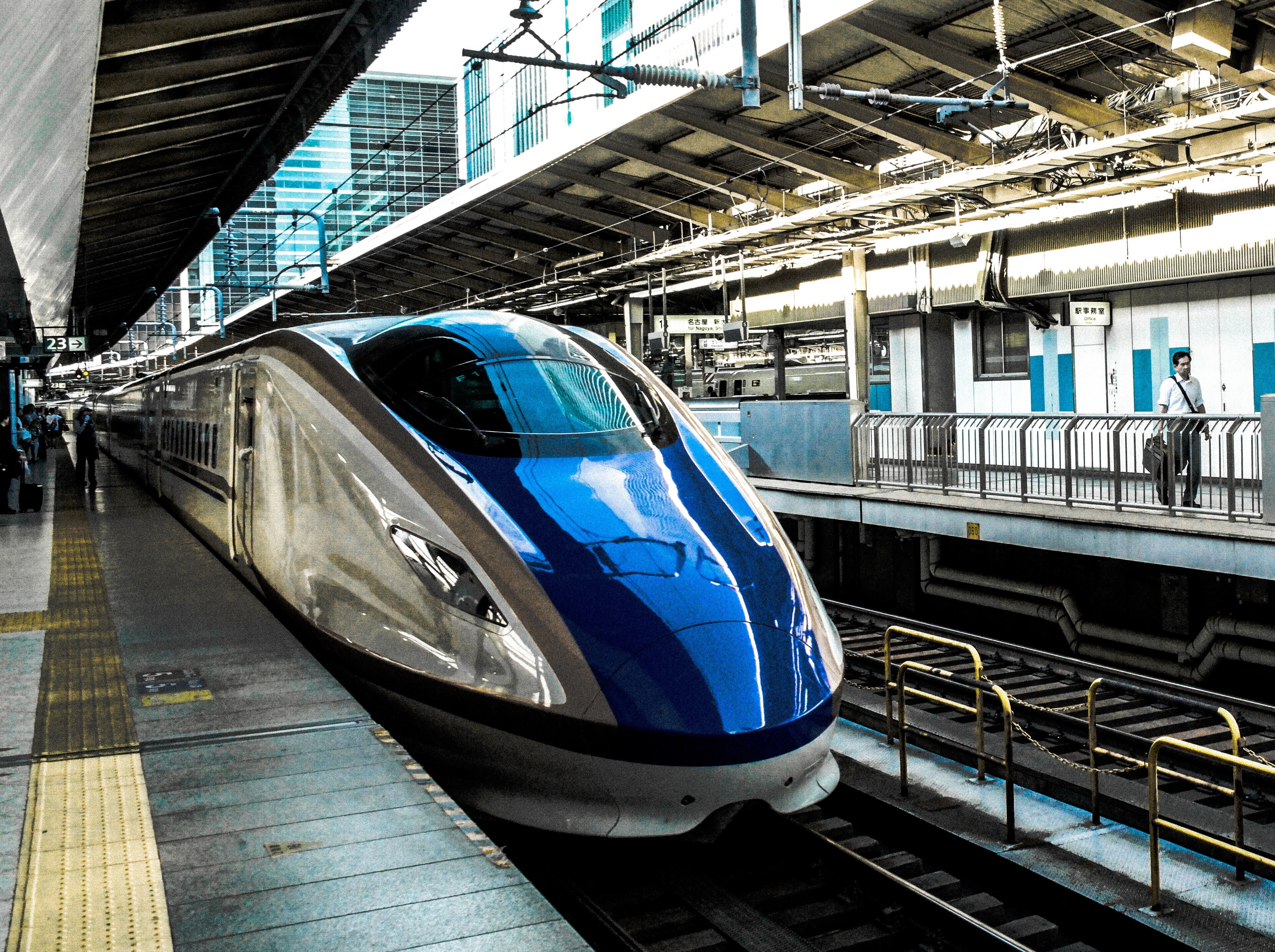Blog
Globalisation 4.0 for Railways: a network connected and divided
Jules Omura
18 April 2019

We are entering the fourth phase of globalisation, delegates were told at the recent World Economic Forum meeting in Davos. At the same time, following the global financial crisis, populist discourse has led to isolationism in global trade.
Since its birth, rail transport has acted as a catalyst for economic growth. We now find ourselves at an important junction. So where are we heading, and what should we be prepared for?
Globalisation so far
Globalisation, ‘the integration of economies through exchange of goods, people and ideas’, has always existed, but historians categorise modern globalisation into three key phases. [1]
The first phase of globalisation (1820-1914) was led by the advent of steam power and the First Industrial Revolution and shaped largely by imperialism. Steam locomotives, first operated publicly in 1825, carried passengers and goods across cultures. After the two world wars came the second phase (1945-1990), which was characterised by more stable trade relationships between nations and by technological advancements such as electrification of rail networks and highspeed rail.
The latest phase of globalisation from around 1990 saw the end of the Cold War and the emergence of ‘new’ economies such as BRICS. In technology, we were introduced to the internet, which led to the Third Industrial Revolution, or information revolution. Cross-border rail transport became increasingly common thanks to political and industry efforts, such as the development of international railway standards and various cross-border projects including the EU’s TEN-T and China’s One Belt One Road.
What is Globalisation 4.0?
Then came the era of the Fourth Industrial Revolution, the complete digitisation of social, political and economic processes through powerful tools such as artificial intelligence, robotics, the Internet of Things, autonomous driving, energy storage and quantum computing. The rail sector is rapidly embracing disruptive technologies: driverless trains, predictive maintenance, smart sensors, cloud computing, big data, 3D printing, 5G, MaaS, biometric ticketing and drones etc. This hyper-connected environment combined with AI tools is realising previously unimaginable collaborations across continents.
However, with Skype meetings, and autonomous Ubers driving you from door to door, how will rail retain its relevance? Does it still have the power to drive progress? Technological advancements inevitably result in job losses. Research conducted by Nomura Research Institute and Oxford University in 2015 predicted that 49% of jobs in Japan will be replaced by AI or robots by 2030. The highest risk job was train drivers, with 99.8% probability of the profession being made redundant in Japan in the next decade.[2] Rapidly aging Japan is facing a chronic labour shortage. With no state-run rail operation in the country and associated political pressures, the same figures may not apply elsewhere, but can predict the direction of travel.
Connecting the disconnect in global trade
While there is a long-term trend for abolishing import duties through free trade agreements, recent global recession and economic migration have led to dissatisfaction, populist rhetoric and isolationism in many industrialised nations. Against this background, rail is making a transition from a domestic-oriented, inward-looking culture to an international network of operations, supply chains, and multimodal partnerships.
As the World Economic Forum’s founder and chairman Klaus Schwab puts it, ‘in this world, globalization won’t disappear; it will deepen. If in the past global integration grew as trade barriers came down, it will now rely on the connectivity of national digital and virtual systems and the related flow of ideas and services. This is the core of Globalization 4.0.’[3]
[1] Shawn Donnan, ‘Davos 2019 Is All About ‘Globalization 4.0.’ So What is That?’, Bloomberg, 22 January 2019.
[2] ‘Probability of being substituted by AI: an analysis of 601 professions’, The Asahi Shimbun Newspaper, 28 January 2019.
[3] Klaus Schwab, ‘Globalization 4.0: A New Architecture for the Fourth Industrial Revolution’, Foreign Affairs, 16 January 2019.
Category: Blog
Tags: AI Automation digital digital revolution disruptive technology driverless Globalisation multimodal predictive maintenance railway sensors World Economic Forum
About the author

Jules Omura is the Founder and Managing Director of IRITS Events Ltd, the organisers of the International Railway Summit.